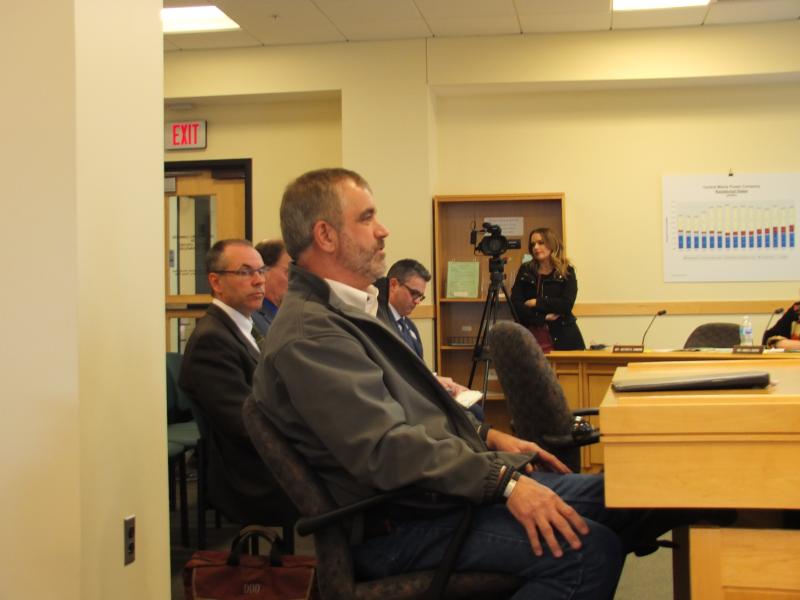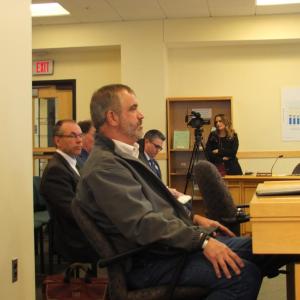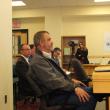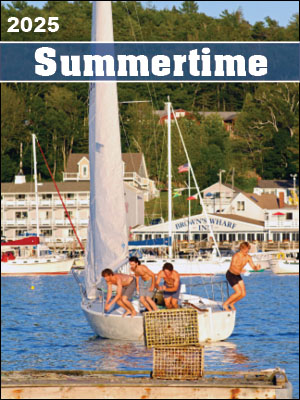Union manager says he warned CMP it was ‘unprepared’ for major storm
Dick Rogers, business and financial manager for IBEW Union Local 1837 which represents line workers for Central Maine Power, told the Joint Standing Committee for Energy, Utilities and Technology March 29, he alerted CMP, the Public Utilities Commission and the public advocate well before last October's windstorm, CMP was unprepared for a major storm.
“Mostly, it was because CMP let a lot of people go who had been in the field. A lot of people took early retirement, and then there was the loss of about 140 meter readers because of the smart meter system,” Rogers said. “Back in 1998, during the ice storm, we had hundreds more people in the field, people who knew the terrain and the possible issues. This time, we had good weather to do the repairs, and it still took 10 days or more to get everybody back on line.”
Rogers estimated the problem was the number of people in the field. CMP countered that office staff were cross-trained to perform some field functions, but Rogers said the office personnel didn’t understand the area as well as the meter readers did, such as knowing where poles were already stressed.
Rep. Seth Berry (D-Bowdoinham) asked if there has been progress since the storm. Rogers said although the company is trying to do a better job to get people, including office personnel and out-of-state workers better aligned, he did not believe public safety has improved. “And we’re still getting storms. We just had another major storm three weeks ago,” he said.
Rep. Jennifer Dechant (D-Bath) asked what Rogers suggested. Rogers said more linemen are needed. “We’re down three people in Lewiston/Auburn. Over the whole company, there are 250 openings, and they are bottlenecked, not being filled.”
Rep. Beth O’Connor (R-Berwick) asked if adding staff would increase rates. Rogers replied, CMP linemen are the lowest paid in the Northeast.
Sen. Mark Dion (D-Cumberland) wanted to know if there was an industry standard for staffing. Rogers said to his knowledge there is none, but there should be some regular ratio of field workers to the customer base.
Rep. Christina Riley (D-Jay) wanted to know if tree-trimming was behind schedule due to staffing issues. Rogers said CMP was doing a good job with tree-trimming. Rep. Janice Cooper (D-Yarmouth) said it sounded like the committee should be putting pressure on CMP to hire people faster.
Absent meter readers, Rogers suggested “bird dog” patrollers to check poles and other infrastructure for advance symptoms of failure; and field planners who would schedule timely equipment replacement. “But we’re short in every position. CMP doesn’t have as many managers as they should have, either.” Support staff, such as those at garages working on CMP vehicles, haven’t been filled, he said. The Portland garage, the largest in the state, in Portland, has two mechanics, not the six to eight when fully staffed, he said. And he said repairs are backlogged for months.
Rogers acknowledged in a storm this size, out-of-state workers would have been called in, anyway, but said with another 140 knowledgeable people on the ground, things would have been restored much faster. He said many of the openings aren’t even posted yet. The union is given a timeline of when jobs will be posted, but they don't always get posted when CMP says they will, he said.
CMP representatives disagreed that staffing was an issue. “We don’t need that many people in the field during a regular day,” Vice President, Treasurer, Controller, and Clerk Eric Stinneford said. “There wouldn’t be enough for them to do.” He did not respond to questions about a lag time in posting jobs and the union’s contention it takes longer to hire than it used to.
Stinneford described the mutual aid arrangement the company has entered into with other Atlantic states and the Maritimes. The mutual aid group is known as North Atlantic Mutual Assistance Group, or NAMAG, and covers the Atlantic seaboard down to about Virginia.
When a storm hits, a call goes out to NAMAG asking for mutual aid crews. For a sizeable storm, crews may be called in from beyond the Atlantic region, as well. According to Stinneford, all the crews call a special storm line, whether they are CMP crews or from out of the area. CMP doesn’t always know who the responding crews are, or what utility they are from. Crews work 17 hours and are off seven hours daily for the duration of the response.
Stinneford said the mutual aid system has worked well.
Event Date
Address
United States





























